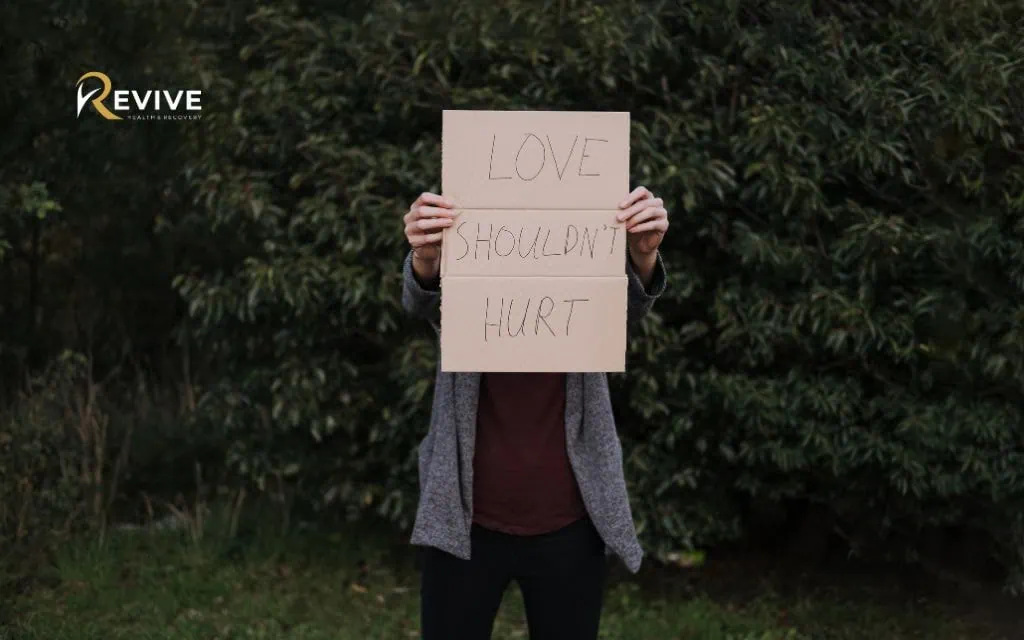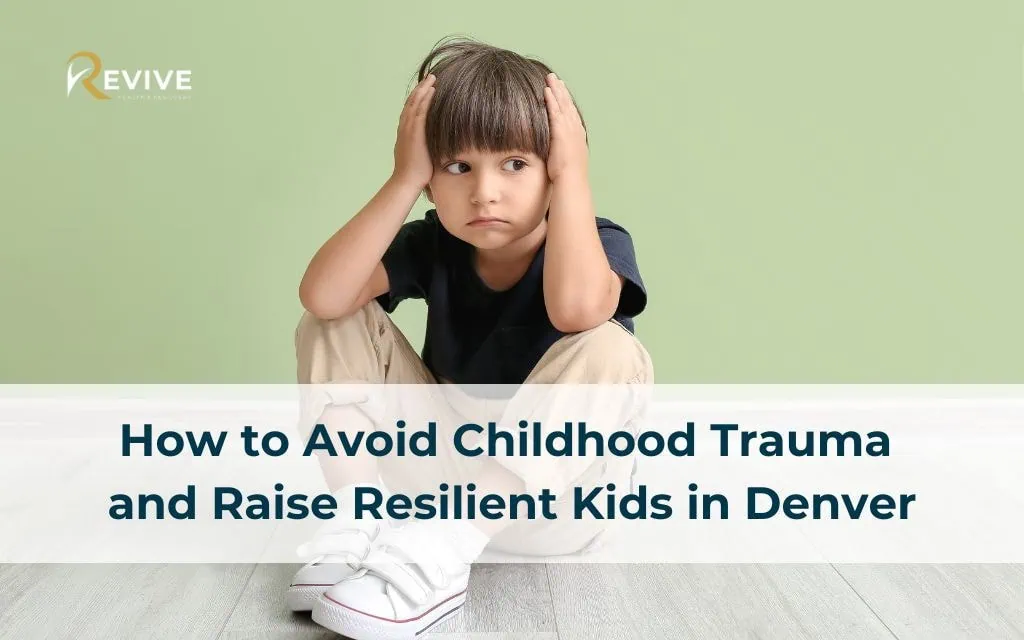Childhood trauma can have lasting impacts on development and well-being, but with the right strategies and resources, it’s possible to create environments where children can thrive. Understanding how to avoid childhood trauma is crucial for parents, caregivers, and communities in Denver, Colorado. This comprehensive guide offers evidence-based approaches to preventing adverse childhood experiences while highlighting local resources available to Denver families.
Understanding Childhood Trauma and Its Impact on Denver Children
What Defines Childhood Trauma and ACEs in Colorado Communities
Childhood trauma refers to adverse experiences before age 18 that can significantly harm a child’s development. These experiences, often called Adverse Childhood Experiences (ACEs), include physical abuse, emotional abuse, sexual abuse, neglect, witnessing domestic violence, and parental substance abuse. According to recent studies, more than half of Colorado children experience at least one adverse childhood experience, making trauma prevention a critical public health concern in our state.
Learn more about ACEs types of childhood trauma to better understand their impact.
Denver’s urban environment presents unique challenges and opportunities for addressing childhood trauma. The city’s diverse population means that trauma prevention strategies must be culturally responsive and accessible to families from various backgrounds. Additionally, the contrast between Denver’s urban landscape and Colorado’s natural environments creates distinctive stressors and resources for families.
“Understanding the prevalence of ACEs in our community helps us develop targeted prevention strategies,” notes a representative from Illuminate Colorado, a statewide nonprofit dedicated to strengthening families and preventing child maltreatment.
Learn more about types of childhood trauma from the National Child Traumatic Stress Network.

How Trauma Affects Child Development and Long-term Outcomes
Childhood trauma can dramatically impact brain development, particularly during critical developmental periods. When a child experiences ongoing stress or trauma, their developing brain architecture can be disrupted, affecting learning, behavior, and health throughout life.
For Denver children experiencing trauma, the effects may manifest as:
- Difficulties with attention and learning in school
- Challenges forming healthy relationships
- Increased risk for mental health issues like anxiety and depression
- Physical health problems that may persist into adulthood
- Higher likelihood of engaging in risky behaviors
These impacts don’t just affect individual children—they have ripple effects throughout Colorado communities, influencing educational outcomes, public health, and economic prosperity. The economic burden of childhood trauma in Colorado is substantial, with increased healthcare costs, special education services, and juvenile justice involvement.
Understand what causes childhood trauma to better address its effects on development
Building Strong Foundations: Creating Trauma-Resistant Homes in Denver
Establishing Safe, Stable, and Nurturing Relationships
How to avoid childhood trauma? The single most powerful protective factor against childhood trauma is the presence of safe, stable, and nurturing relationships. For Denver families, creating these relationships means:
- Consistently responding to your child’s needs in warm, supportive ways
- Establishing predictable routines that help children feel secure
- Creating family rituals that strengthen bonds and build positive memories
- Practicing attachment-focused parenting techniques that foster emotional security
“When children know they have reliable caregivers who will protect them and respond to their needs, it creates a buffer against potential traumatic experiences,” explains a childhood development specialist at Children’s Hospital Colorado.
Learn more about protective factors for childhood trauma that can strengthen these relationships.
Denver offers numerous resources for parents seeking to strengthen their relationship skills, including parenting workshops through organizations like Denver Children’s Advocacy Center and WellPower (formerly the Mental Health Center of Denver).
Check out Child Welfare’s tip sheets for practical parenting strategies to foster these relationships.
Developing Resilience Skills in Colorado Children
Resilience—the ability to recover from difficulties—is a critical skill that can help children navigate challenging experiences without developing trauma. Colorado’s unique natural environment offers special opportunities for building resilience through outdoor activities and nature-based therapies.
To develop resilience in Denver children:
- Teach problem-solving skills through age-appropriate challenges
- Help children identify and express their emotions in healthy ways
- Encourage connections with supportive adults beyond parents
- Engage in physical activities that build confidence and stress management skills
- Utilize Denver’s abundant outdoor spaces for healing and growth
Denver’s proximity to the mountains creates unique opportunities for resilience building through high-altitude activities and wilderness programs that aren’t available in many other urban areas. These programs leverage Colorado’s natural environment to help children build confidence and coping skills.
Trauma-Informed Parenting Approaches for Denver Families
Recognizing Early Warning Signs of Stress and Trauma
Being able to identify signs of stress and trauma early allows for prompt intervention before lasting harm occurs. The SAMHSA guide on recognizing child traumatic stress offers valuable insights for parents and caregivers.
Parents in Denver should watch for:
- Changes in sleep patterns or nightmares
- Regression to earlier behaviors (like bedwetting or baby talk)
- Increased irritability or emotional outbursts
- Social withdrawal or school avoidance
- Physical complaints like stomachaches or headaches without medical cause
- Concerning play that repeatedly acts out traumatic themes
Denver offers specialized screening resources through programs like CO4Kids and the Tennyson Center for Children, where trained professionals can help determine if a child is experiencing toxic stress or trauma and How to avoid childhood trauma.

Effective Communication Strategies to Support Children
How we talk with children can either protect against or potentially contribute to trauma. Effective communication strategies for Denver families include:
- Active listening that validates children’s feelings without judgment
- Creating regular opportunities for open, honest conversations
- Using age-appropriate language to discuss difficult topics
- Respecting children’s boundaries while ensuring safety
- Incorporating cultural considerations specific to Colorado’s diverse communities
“The way we communicate with children after difficult experiences can determine whether those experiences become traumatic or opportunities for growth,” notes a trauma specialist at the Rocky Mountain Prevention Research Center.
Denver’s multicultural landscape means communication strategies must be adapted to respect various cultural norms around emotional expression and family roles. Organizations like Denver Children’s Advocacy Center offer culturally responsive guidance for families from diverse backgrounds.
Community Resources for Trauma Prevention in Denver
Denver Organizations Leading Childhood Trauma Prevention
Denver is fortunate to have several specialized organizations dedicated to trauma prevention and treatment:
Denver Children’s Advocacy Center offers comprehensive services including prevention education, forensic interviews, and trauma-focused therapy. Their Immigrant Family Initiative provides specialized support for immigrant families facing unique challenges.
Illuminate Colorado manages the Colorado Child Sexual Abuse Prevention Network and provides training and resources to strengthen families and prevent maltreatment statewide.
Children’s Hospital Colorado offers specialized mental health services for children who have experienced trauma, as well as resources for prevention.
Tennyson Center for Children delivers intensive therapy and support services for kids and families dealing with trauma, including in-home services throughout Colorado.
WellPower provides a range of mental health services specifically designed for children and families, including trauma-specific interventions.
CO4Kids maintains a hotline (1-844-CO-4-KIDS) for reporting concerns about child welfare and connects families with supportive resources.
These organizations collaborate through innovative initiatives like the STANCE (Linking Systems To address ACEs iN Childhood Early on) collaborative, which represents a unique Denver-based approach to coordinating trauma prevention efforts.
Colorado Schools and Trauma-Informed Education
Schools play a crucial role in preventing and addressing childhood trauma. In Denver, many schools are implementing trauma-informed approaches that:
- Train teachers to recognize signs of trauma and respond appropriately
- Create classroom environments that feel physically and emotionally safe
- Implement disciplinary practices that support rather than punish children in distress
- Connect families with needed resources and support services
Colorado’s trauma-informed school initiatives focus on both urban Denver settings and rural mountain communities, recognizing the different challenges faced in various regions of our state.
Parents can advocate for trauma-informed approaches in their children’s schools by connecting with school counselors, attending parent-teacher meetings, and participating in school district community forums.
Supporting Children Through Difficult Times in Colorado
Navigating Family Challenges While Minimizing Trauma
Even in the most caring families, difficult situations arise that could potentially become traumatic for children if not handled thoughtfully. For Denver families navigating challenges like divorce, financial instability, illness, or loss, these strategies can help minimize trauma:
- Maintain as much stability and routine as possible during transitions
- Be honest with children in age-appropriate ways without burdening them
- Ensure children know they are not responsible for adult problems
- Connect with support services early rather than waiting for a crisis
- Utilize Colorado’s legal protections for children, which are among the most comprehensive in the nation
Denver’s community-based prevention models bring services directly to neighborhoods with the highest need, making support more accessible during difficult times. Organizations like Family Resource Centers offer concrete assistance with basics like food, housing, and childcare during family challenges.
When to Seek Professional Help in Denver
Sometimes, despite our best prevention efforts, professional help is needed. Signs that indicate a need for professional support include:
- Persistent emotional or behavioral changes lasting more than a few weeks
- Behaviors that interfere with daily functioning at home or school
- Expressions of hopelessness or thoughts of self-harm
- Trauma symptoms that don’t improve or worsen over time
Denver offers numerous options for professional support, including:
- Community mental health centers like WellPower
- School-based mental health services
- Specialized trauma treatment at Children’s Hospital Colorado and other healthcare facilities
- Sliding scale and insurance-based therapy options
For specific information about accessing services, including insurance coverage and financial assistance options, contact Revive Health Recovery for personalized guidance at (303) 268-4655.
Breaking the Cycle: Preventing Generational Trauma in Colorado Families
Addressing Parents’ Own Trauma Histories
One of the most effective ways to prevent childhood trauma is for parents to address their own trauma histories A study on intergenerational trauma from NCBI highlights the importance of this approach. When parents heal, they are better equipped to provide the safe, nurturing environment children need.

Denver offers several resources for adults healing from their own childhood trauma:
- Adult trauma therapy services through organizations like WellPower
- Trauma-informed parenting groups specifically for parents with trauma histories
- Colorado’s innovative peer support programs for trauma survivors
- Parent-child therapy options that help heal relationships while addressing past trauma
The Colorado Child Maltreatment Prevention Framework for Action, a national model developed in our state, emphasizes the importance of supporting parents’ wellness as a critical component of preventing childhood trauma.
Creating New Family Patterns and Traditions
Breaking cycles of generational trauma often involves consciously creating new family patterns. Denver families can:
- Establish positive family rituals that create connection and belonging
- Engage with cultural celebrations and community events that foster identity and pride
- Build supportive networks with other families through community organizations
- Participate in Denver’s unique outdoor recreation opportunities that promote family bonding
Colorado’s trauma-informed approach often incorporates Indigenous perspectives from local Native American communities, offering wisdom about intergenerational healing and resilience that benefits all families.
Denver’s Approach to Community-Based Trauma Prevention
Neighborhood Safety and Community Cohesion
Safe, connected communities provide a protective buffer against childhood trauma. Denver’s neighborhood initiatives include:
- Community watch programs that increase physical safety
- Family resource centers that provide concrete support in times of need
- Safe spaces for children like libraries, recreation centers, and parks
- Neighborhood events that build social connections between families
These efforts align with Denver’s pioneered community-based prevention models that bring services directly to neighborhoods with the highest need, rather than requiring families to travel to centralized locations.
Advocacy and Policy Efforts in Colorado
Colorado has been a leader in developing policies that support trauma prevention. Current initiatives include:
- Expanding access to quality early childhood education and care
- Increasing mental health services in schools and community settings
- Supporting family-friendly workplace policies like paid family leave
- Implementing trauma-informed approaches in child welfare and juvenile justice systems
Denver residents can get involved in these efforts by contacting their elected officials, participating in community forums, and supporting organizations that advocate for family-friendly policies.
Colorado’s trauma prevention frameworks specifically address environmental trauma factors like wildfires and climate disasters, recognizing the unique challenges facing our state’s communities.
FAQs About How to avoid childhood trauma in Denver
What are the most common types of childhood trauma affecting Denver families?
In Denver, the most common types of childhood trauma include exposure to domestic violence, parental substance abuse, neglect related to economic hardship, and community violence. Environmental factors unique to Colorado, such as natural disasters like wildfires, can also be sources of trauma. Revive Health Recovery specializes in addressing these Denver-specific trauma factors through comprehensive, culturally responsive care.
How can I tell if my child is experiencing trauma or toxic stress in Denver?
Signs include changes in behavior, sleep disturbances, regression in development, physical complaints without medical cause, and academic difficulties. Denver children may also show increased anxiety about environmental events like wildfires or violence. Revive Health Recovery offers expert assessment services to help Denver families determine if their child is experiencing trauma and develop appropriate intervention plans.
What free resources are available in Denver to help families prevent childhood trauma?
Denver offers numerous free resources including CO4Kids hotline (1-844-CO-4-KIDS), community workshops through the Denver Children’s Advocacy Center, library programs, and parent support groups through Illuminate Colorado. While these resources provide valuable support, Revive Health Recovery can help families navigate these options and access additional specialized services when needed.
How can Denver schools and childcare centers implement trauma-informed approaches?
Denver schools can implement trauma-informed practices by training staff, creating safe environments, using supportive discipline practices, and partnering with mental health providers. Revive Health Recovery works with schools throughout Denver to develop comprehensive trauma-informed systems tailored to each community’s unique needs.
What steps can Denver communities take to collectively prevent childhood trauma?
Communities can strengthen neighborhood connections, create safe spaces for children, advocate for family-friendly policies, and ensure accessible support services. Revive Health Recovery leads community initiatives throughout Denver, partnering with neighborhoods to develop customized prevention strategies that address each area’s specific challenges and strengths.
Why Choose Revive Health Recovery for Childhood Trauma Prevention and Treatment
When it comes to addressing childhood trauma in Denver, Revive Health Recovery stands out as a leader in prevention, intervention, and treatment. Here are five reasons to choose our services:
- Denver-Specific Expertise: Our team understands the unique challenges facing Denver families and offers locally relevant, culturally responsive approaches to trauma prevention.
- Comprehensive Family Support: We don’t just treat children—we work with entire families to address root causes of trauma and build stronger, healthier relationships.
- Evidence-Based Practices: Our trauma prevention and treatment approaches are grounded in the latest research, ensuring effective, lasting results.
- Individualized Care Plans: We recognize that each child and family is unique, creating customized prevention and treatment plans that address specific needs and strengths.
- Community Connections: Our deep relationships with Denver’s network of support services ensure families receive coordinated, holistic care beyond our walls.
At Revive Health Recovery, we’re committed to helping Denver families break cycles of trauma and build resilient, thriving communities. Contact Revive Health Recovery in Denver today at (303) 268-4655 to learn more about our childhood trauma prevention and treatment services, or to schedule a confidential consultation with one of our trauma specialists.
Conclusion
How to avoid childhood trauma starts with creating environments that nurture safety, trust, and emotional well-being. Healing from past trauma is possible, and with the right support, you can break free from its grip. Denver Colorado Trauma-Safe Therapy offers a specialized approach to healing that focuses on both prevention and recovery. By addressing the root causes of trauma and providing compassionate care, we empower individuals to build healthier futures. If you or someone you know is seeking guidance, remember that you’re not alone on this journey. Together, we can create a path to safety, healing, and resilience. Reach out today to begin your transformative healing process.
By taking proactive steps to understand and prevent childhood trauma, Denver families can create safe, nurturing environments where children can develop to their full potential. The journey to trauma prevention starts with a single step—reach out today to begin yours.



